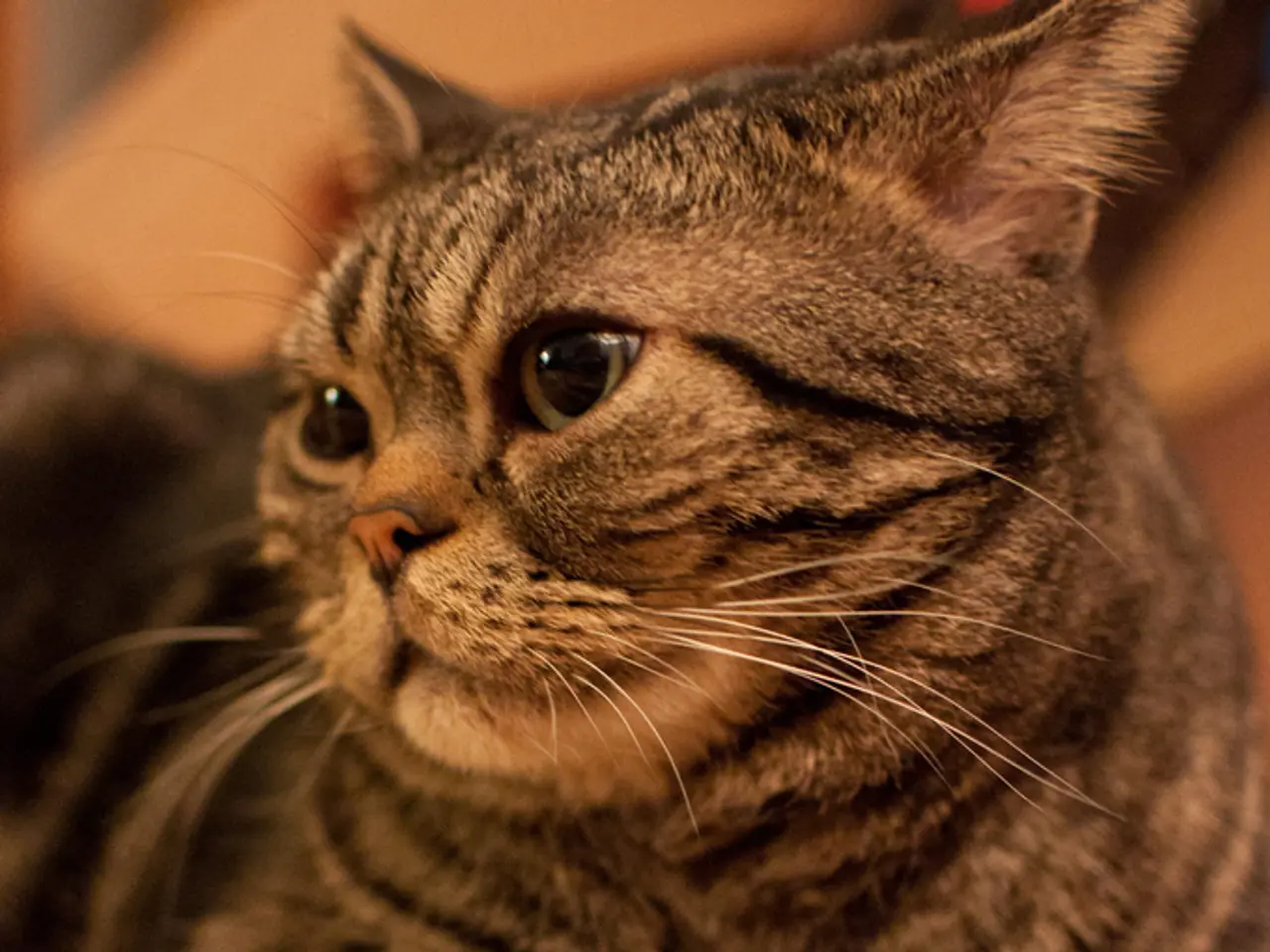Excessive Meowing by House Cats: Unraveling the Reasons
Cats, often known for their quiet and independent nature, may at times exhibit excessive meowing. This behavior can be attributed to a variety of factors, including medical issues, behavioral motivations, and breed-specific traits.
If your cat wakes you at night with persistent meowing, it might be signaling a need for more stimulation during the day. Ensuring your feline friend has access to food, a clean litter box, and a full water bowl can help reduce excessive meowing.
Common medical conditions that may cause a cat to meow excessively include kidney disease, urinary tract issues, hyperthyroidism, high blood pressure, pain, cognitive dysfunction or dementia, and deafness. If you suspect a health problem, a vet visit is essential to rule out any underlying issues.
Behavioral factors contributing to excessive meowing include hunger or thirst, seeking attention, loneliness, stress or anxiety often triggered by changes in environment or routine, reproductive behavior in unspayed or unneutered cats, boredom, learned behavior reinforced by owners, and separation anxiety.
Breed-specific traits also play a role in a cat's vocal habits. For example, Siamese cats and some other breeds are known for having louder, more frequent, and more persistent vocalizations than other cats. Older cats experiencing cognitive decline may also meow excessively.
To manage excessive meowing, it's important to consider both health status and environmental or social factors. Indoor-outdoor cats may meow to gain access in or out, especially if their routine has changed. An outdoor cat enclosure or cat door can allow safe exploration and potentially stop persistent meowing.
Environmental changes may help if a cat's meowing has increased due to factors such as a new pet, move, or spending time alone. Enrichment, such as puzzle feeders, toys, and regular interaction, can help reduce excessive meowing by providing mental and physical stimulation.
Spaying or neutering a cat can dramatically reduce vocal behaviors related to the heat cycle and breeding season. If you're going to be away for long periods, a pet sitter may be necessary to ensure your cat's needs are met and to help manage any behavioral changes.
In summary, understanding the causes of excessive meowing in cats can help owners address the issue effectively. By considering medical, behavioral, and breed-specific factors, and providing appropriate enrichment and care, you can help your feline friend find a more peaceful coexistence in your home.
Health-and-wellness concerns in cats, such as kidney disease or hyperthyroidism, can cause persistent meowing. To manage mental health issues that might be causing excessive meowing, provide your pet with a stimulating lifestyle, including toys, puzzles, and regular interaction. Incorporating technology, like a cat door or outdoor enclosure, can also help manage unwanted meowing by facilitating safe exploration and reducing stress related to changes in environment or routine.




